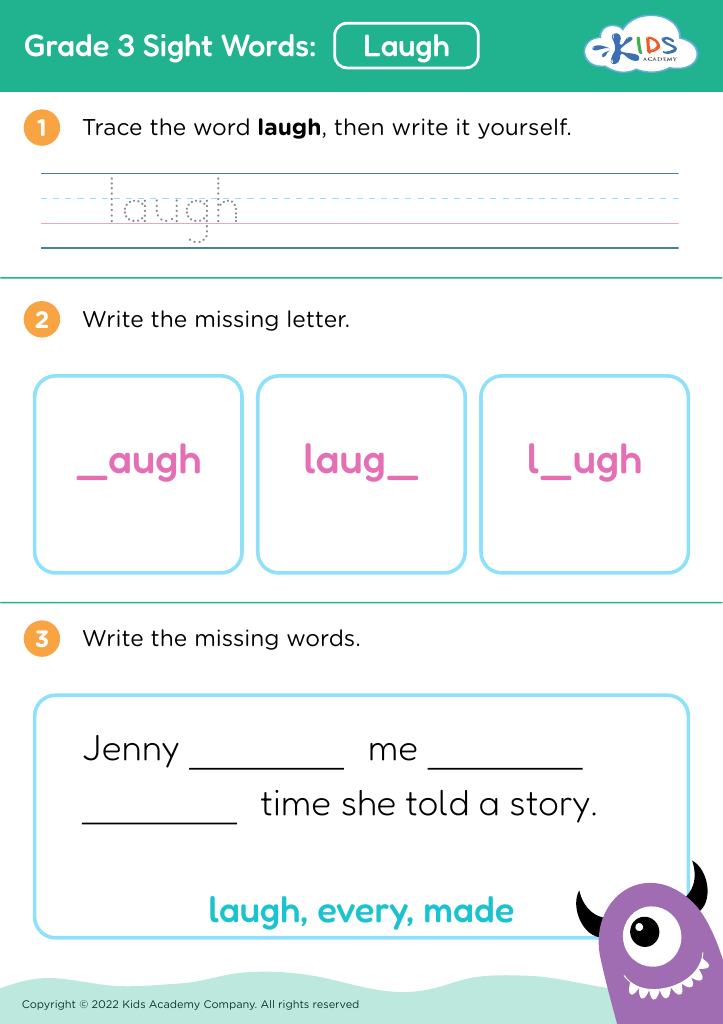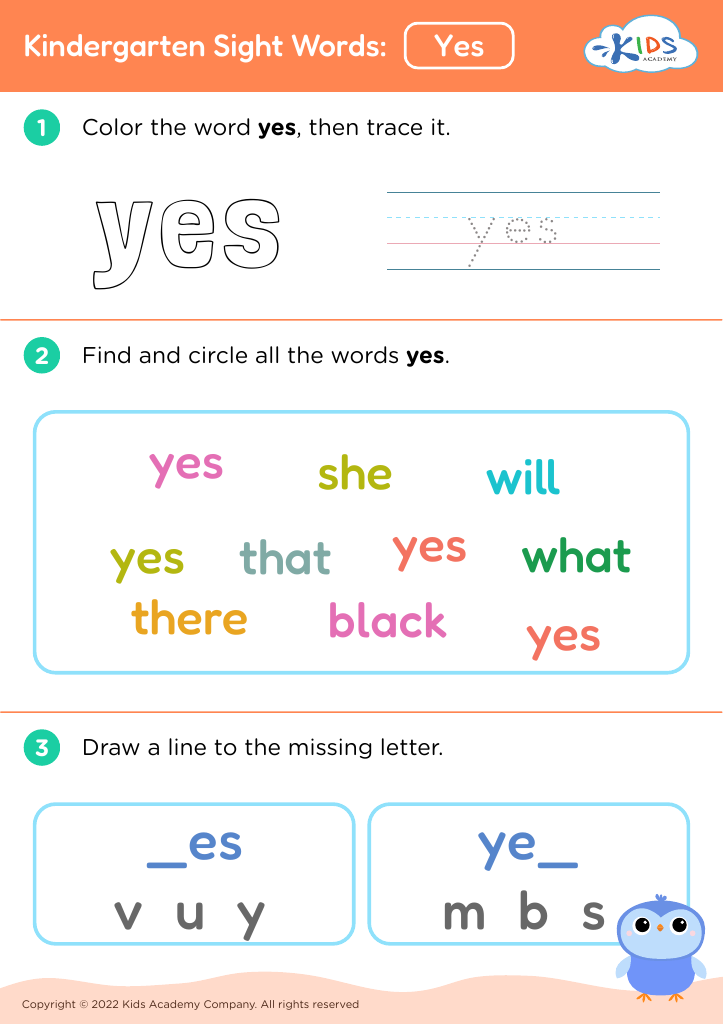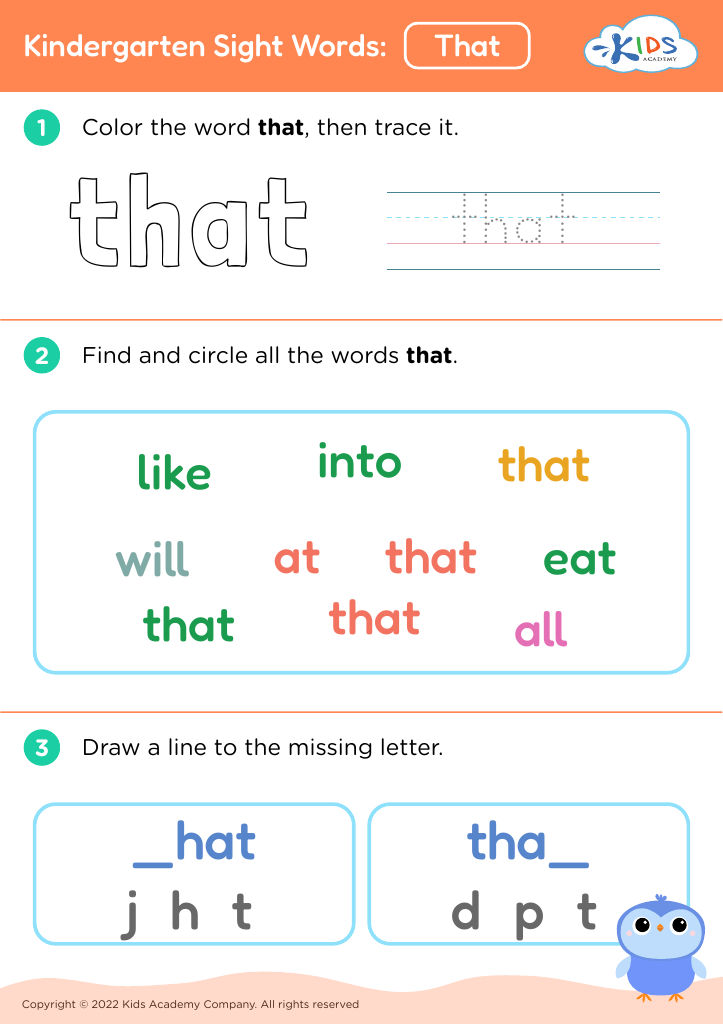Practice subtraction Building Vocabulary Worksheets for Ages 5-9
4 filtered results
-
From - To
Enhance your child's learning experience with our "Practice Subtraction Building Vocabulary Worksheets" designed for ages 5-9. These engaging worksheets intertwine subtraction practice with vocabulary building, making math lessons both fun and educational. Each activity encourages kids to explore new words while mastering essential subtraction skills. Perfect for home or classroom use, our resources cater to various learning styles, ensuring all young learners thrive. By integrating language and math, your child will not only improve their arithmetic abilities but also expand their vocabulary in a playful, interactive manner. Get started today and help your child build a strong foundation in both subjects!
Parents and teachers should prioritize building vocabulary around subtraction for children ages 5-9 because language development is closely linked to mathematical understanding. As young learners are introduced to subtraction concepts, a robust vocabulary enables them to articulate their thoughts, ask questions, and engage in meaningful discussions about math. Words such as "minus," "less than," "difference," and "take away" help children concretely frame their understanding of subtraction operations.
Furthermore, building vocabulary strengthens critical thinking skills. When children understand the terminology, they can systematically approach problems and solve them more effectively. It also fosters confidence. Kids who can verbally express their thought processes are more likely to share their ideas and ask for help when needed.
Additionally, language-rich environments stimulate cognitive development, helping students make connections between concepts across subjects. This integrated approach helps children view mathematics as a cohesive component of their education and daily life.
Engaging with subtraction vocabulary through games, stories, and real-life applications can make learning enjoyable, ensuring that kids not only master subtraction but also recognize its relevance in everyday situations. In essence, a strong foundation in mathematical vocabulary is essential for promoting overall academic achievement and a positive attitude toward learning.


















.jpg)
.jpg)










